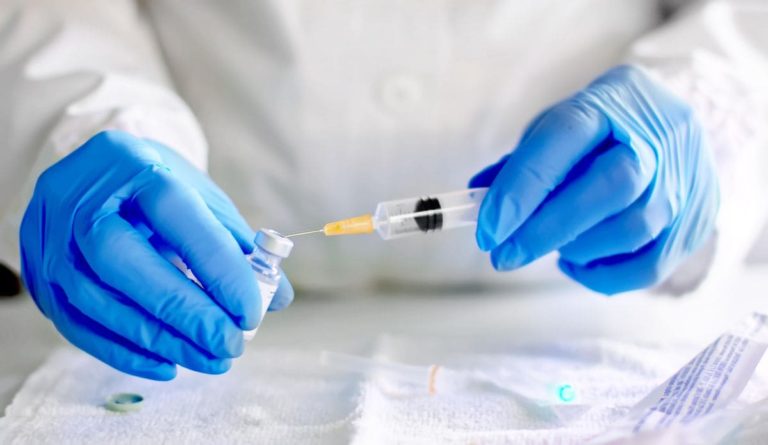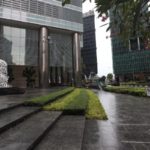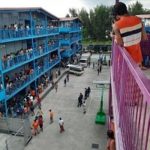What You Should Know About COVID-19 Vaccine in Singapore?

Singapore will receive its first shipment of the Pfizer-BioNTech vaccine against COVID-19. The Singapore Government has invested > $1 billion in a portfolio of vaccines and these include vaccines from leading suppliers such as Pfizer BioNTech, Modena and Sinovac. At this time, only the Pfizer-BioNTech vaccine has been approved and registered for use in Singapore by the Health Sciences Authority (HSA) under the Pandemic Special Access Route.
By the third quarter of 2021, Singapore will have received more than enough vaccines to fully vaccinate all eligible people in Singapore. The COVID-19 vaccine programme seeks to protect Singaporeans against COVID-19, as well as to protect businesses and jobs through the progressive re-opening of Singapore. Vaccination is free to all Singaporeans and long-term residents in Singapore.
There is a risk of serious, life-threatening disease and death from COVID-19 infection, especially in the elderly and other vulnerable groups. Getting vaccinated against COVID-19 is one way to prevent the disease, minimise the risk of transmission, and prevent our healthcare system from being overwhelmed.
It is important for us to achieve as high a level of population coverage as possible, to provide protection for the majority of our population. A population with high vaccination coverage against COVID-19 will indirectly protect those who are unable to receive COVID-19 vaccine as the risk of transmission of the disease will be greatly reduced.
In assessing the suitability of vaccine candidates, the Expert Committee took into consideration vaccine safety and efficacy, Covid-19 vaccine tolerability, as well as data adequacy of clinical trials.
The Health Sciences Authority authorised the Pfizer-BioNTech Covid-19 vaccine, based on the following assessment:
- It has a high vaccine efficacy of 95% in preventing symptomatic Covid-19 disease in vaccinated persons aged 16 years and older.
- Its safety profile is consistent with other established and registered vaccine. No significant safety concerns have been detected. Common side effects were expected as part of the body’s natural response to a vaccination, such as injection site pain, fever, fatigue and headache.
- The benefits outweigh the known risks. But continued monitoring for longer-term efficacy of the vaccine, as well as monitoring for rare and serious adverse events will be needed.
Until more information is available, pregnant women and those under 16 years old should not receive the vaccine. It is also not recommended at this stage for immunocompromised individuals.
How safe the Covid-19 Vaccine works?
For the vaccines for which Phase 3 trial data is available (i.e. Pfizer-BioNTech and Moderna), analyses showed that efficacy in preventing symptomatic COVID-19 disease after completion of the vaccine regimen is about 95%. Studies are still ongoing on the extent and duration of immunity provided by the vaccines.
In particular, at the point of submission with HSA for PSAR authorisation, with data from median follow-up of 2 months, the Pfizer-BioNTech COVID-19 Vaccine demonstrated a high vaccine efficacy of 95% in reducing symptomatic COVID-19 disease in vaccinated persons aged 16 years and older, with no signs of waning protection. We will continue to monitor and review further data on the duration of immunity.
Some people may experience side-effects such as fever, redness and swelling at the injection site. These are common side-effects and expected as part of the body’s natural response towards build immunity against COVID-19.
The Health Sciences Authority authorised the Pfizer-BioNTech Covid-19 vaccine, based on the following assessment:
- High vaccine efficacy of 95 per cent in preventing symptomatic Covid-19 disease in vaccinated people aged 16 and above
- Its safety profile is consistent with other established and registered vaccines
- The benefits outweigh the known risks
Who should take the vaccine?
COVID-19 vaccination may be voluntary, but the Government strongly encourages all who are medically eligible to be vaccinated when it is offered to you. When more of us are vaccinated, the harder it will be for the virus to spread, and the safer we will be as a society. Priority will be given to those at greater risk of infection, such as healthcare and COVID-19 frontline workers, as well as vulnerable groups, including seniors.
There is a general consensus globally on the need to prioritise vaccination based on the following principles:
a. Sustain healthcare and COVID-19 response systems
b. Reduce morbidity and mortality among those at greatest risk
c. Protect those at increased risk due to their living or working conditions (e.g. settings with the potential for rapid transmission and large outbreaks)
d. Maintain the function of society as a whole with a view to maximise benefits and minimise harms.
As vaccine supply will arrive in Singapore in batches over several months as manufacturers increase their production of vaccines, vaccination should start with groups who are at greater risk and hence most in need of COVID-19 vaccination, including healthcare workers and COVID-19 frontline workers, as well as vulnerable groups at greater risk of severe disease from COVID-19 infection, such as the elderly.





